Strictly Personal
Nigeria 2023: The best and worst of times, By Reuben Abati
Published
1 year agoon
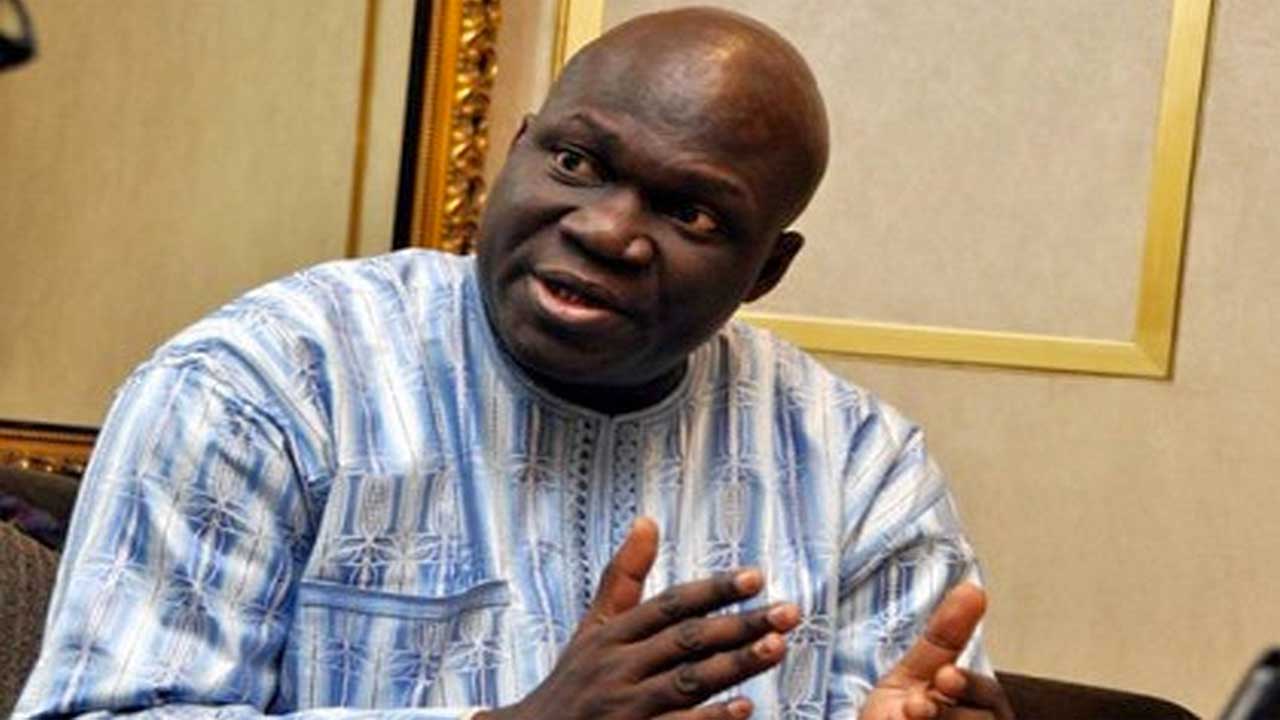
The best way to describe what has happened to Nigeria in the last 72 hours, beginning with the country’s first set of general elections on Saturday, February 25, 2023, is to echo Charles Dickens’ poetic, oxymoronic declaration in his novel ‘A Tale of Two Cities’ (1859) on the radical opposites between Paris and London in the 19th century, that indeed Nigeria now finds itself in truly interesting times, where the best and the worst are on display. Dickens’s novel is one of the best novels ever written.
He told the world famously: “It was the best of times, it was the worst of times, it was the age of foolishness, it was the epoch of incredulity, it was the season of light, it was the season of darkness, it was the spring of hope, it was the winter of despair, we had everything before us, we had nothing before us, we were all going direct to heaven, we were all going direct the other way – in short the period was so far like the present period, that some of its noisiest authorities insisted on its being received, for good or for evil, in the superlative degree of comparison only”.
At the time Charles Dickens wrote ‘A Tale of Two Cities’, this was in the context and season of the French Revolution. Nigeria did not come into being until 1914, when the consort of a colonial Governor-General, Flora Shaw and her man, the fascist Lord Lugard willed and named Nigeria into being, with the dubious imprimatur of the British panjandrum. But the concept of radical opposites of values, expectations and realities, established in Dickens’s classic, in line with the other classical polarities portrayed in world literature from Nietzsche, Thomas Mann to Wole Soyinka and after, in more contemporary times tell simply the story of the given duality of human becoming. And so, it has been with Nigeria’s current electoral process in this first stage. Why has this been the best of times and why at the same time, the worst?
Best of times: Nigeria’s elections in 2023 would be the first time since 2011 that the elections have not been postponed. In other election cycles, previous administrations before now always found an excuse to shift the “goal-post” as Nigerians are wont to say. But this time around, the Independent National Electoral Commission (INEC) promised that it would stay within the same time frame that it announced in line with constitutional provisions. Even when the INEC came under immense pressure from political parties and other stakeholders with regard to other emergent factors over which it had no control, such as the national currency redesign policy which robbed most Nigerians of access to cash during an election season, and nationwide fuel scarcity which made transportation across the country difficult, the electoral body remained focused on its schedule. One factor that played strongly in its favour was the support of the incumbent president, Muhammadu Buhari, who repeatedly told Nigerians that he was committed to a smooth transition of power and that he was looking forward to a due exit from power.
He also promised to provide the electoral body and the security agencies with all the necessary wherewithal to make the election possible. Buhari, a former military head of state (1983 – 1985) ran for the presidential office in 2003, 2007, and 2011, and won the fourth time in 2015. He was re-elected in 2019. Nigeria’s 1999 constitution prescribes only a limit of two terms, that is — a maximum of eight years for an elected president. In Africa, the constitution means nothing to sit presidents, the rule of law is seen as an imposition, and access to power is regarded as a birthright. By choosing to toe the path of the likes of Nelson Mandela, Thabo Mbeki, Goodluck Jonathan, Ellen Johnson-Sirleaf, John Mahama, Ernest Bai Koroma, and Joyce Banda – African leaders who respected the Constitution and moved when it was time to do so, as contrasted with the likes of the old men in Equatorial Guinea (Teodoro Obiang Mbasogo, 80), and Cameroon (Paul Biya, 90) who seem to be following in the footsteps of Hastings Kamuzu Banda of Malawi, Togo’s Gnassingbe Eyadema, and Zimbabwe’s Robert Mugabe. African leaders see themselves as monarchs who must die in office. Whatever may have been his failings, Nigeria’s Muhammadu Buhari as of this moment has not shown any sign of any clumsy attempt to cling to power by foul means. It is almost a widely accepted fact in Nigeria that the president is on his way out, and that all permutations to the contrary are odious. When he leaves eventually on May 29, 2023, it would be said of him that he is a good student of history, learning to avoid the example of certain other African leaders who failed before him, rather choosing the path of honor.
It is also the best of times in Nigeria because Nigeria’s democracy appears to be standing “firm”. Nigeria held its first legislative elections on September 20, 1923, in Calabar, under the 1922 Clifford constitution. Thus, for 100 years, Nigerians have been trooping out to vote in one election or the other, beginning with legislative elections. But in all of those 100 years, the interludes have been legislative somersaults, intrigues between the colonials and the people, as well as war and military interventions. In 1922, Sir Hugh Clifford set up a legislative council with a membership of 46 persons, four of whom were later elected from Lagos (three) and Calabar (one) in 1923. The Clifford constitution introduced the idea of representation, elections, and the formation of political parties. The arrangement under the Clifford constitution survived for only 25 years. Northern Nigeria was not represented in the council, and hence, in 1946, the Clifford Constitution was replaced by the Richards constitution, the objective of which was to increase participation and inclusion. The history of constitutional developments in Nigeria has been better treated by scholars of the subject – Kalu Ezera and others.
Our point is simply that since the return to civilian rule in 1999, and despite all the bickering about the 1999 constitution, what has given hope about the 2023 electoral process in Nigeria has been the belief that a proper legal framework has been emplaced and that the rule of law through the constitution and subsidiary legislation and adherence to same would facilitate good outcomes. Before the 2023 general elections, Nigeria agreed on a new Electoral Act 2022. Since 2000, every effort to make far-reaching changes to the country’s electoral framework ran into troubled waters. Indeed, ahead of the 2019 general elections, the presidency refused to touch any of the amendments proposed by the national legislature. President Buhari rejected the then-proposed bill four times. But in 2022, the situation changed. The national assembly not only passed the Electoral Bill 2022, but it also became a new law. The beauty of it is that it sought to address many of the ills that had plagued the electoral system in Nigeria. Nigerians went into the election therefore full of hope, that with the emphasis on the deployment of technology – the Bio-Modal Voter Accreditation System (BVAS) and the INEC Election Reporting Portal (IREV), all would b
It has also been the best of times because of the determination, the resilience of the people, and their zeal and passion to use this election to make a statement and a difference. In 2015, when President Buhari was proposed to them as the messiah that Nigeria needed, they all went out on the wing of hope and a promise and supported Buhari and his party, the APC. In 2019, they gave both another chance. But the people were short-changed. Buhari and his people could not keep their promise. The trust deficit between the people and the government grew. The government said it was fighting corruption but nothing else worked. The economy collapsed. Inflation and unemployment shot through the roof, not necessarily because of exogenous global trends, but because governance had been poor.
Nigeria’s 2023 general election has turned out to be the most competitive since the return to democratic rule in 1999 but it provides the people with an opportunity to have a voice in how they are governed, especially the youths who in 2020 had turned out en masse to protest against police brutality and poor governance: the #EndSARS, #SoroSoke phenomenon. This sub-text played out in terms of the desperation of the people to get registered for the votes and to get their voter’s cards. Ahead of election day, many slept overnight at voting stations. When voting ended at 2.30 p.m. on voting day and INEC promised that people could stay in the queue for “as long as it talks”, many across the country remained in the queue with their torch lights. In many places, they were disappointed.
But still, it is the best of times because of the people’s belief that democracy could and should move the country forward because, by the time the electoral body began to announce the results, it was clear that the people’s voice had been heard. The results that have been announced so far show the people’s rebellion against the old order, and a yearning for change. The Labour Party and its candidate – Peter Obi may not win the election eventually, but they have both caused a big disruption that could change Nigeria’s electoral map in a substantially significant manner. Labour Party, catalyzed by Peter Obi and his band of revolutionaries, have become the lightning rod for the rude awakening that Nigeria needs. With victories in the South East, in Southern Kaduna, parts of the North Central and the North West, and the displacement of the stranglehold of the All Progressives Congress (APC) and the ruling party candidate, Bola Tinubu, in Lagos, it is clear that something has shifted in Nigerian politics.
In many parts of the country, old and established politicians were voted out. They lost their seats, from Anambra to Ekiti to Plateau and Benue and Cross River. Some of the victims of the people’s rebellion include the governors of Cross Rivers state – Ben Ayade; Benue – Samuel Ortom; Enugu– Ifeanyi Ugwuanyi, and so many others who have now been told that there is a limit to state capture and the excesses of the complicit middle class. This is one of the signals coming out of Nigeria’s 2023 elections. This is a signal that cannot be ignored. This has inspired hope in many Nigerians that the change that they truly want may be possible, and that the status quo can be effectively challenged. Who would ever have thought that the same Labour Party that was regarded as a non-party, without structures, six months ago, could cause so much disruption of the old order, even if it does not win? Who would ever have thought that Peter Obi would defeat the Almighty Tinubu in his own local government in Ikeja, Lagos, in Eti-Osa, or Oshodi, or Alimosho, the stronghold of the much-acclaimed Lion of Bourdillon?
But it is indeed also the worst of times. The elections that took place on Saturday, February 25, 2023, were marred by the same problems that have always plagued Nigerian politics – identity politics, ethnicity, religion, hate speech, violence, vote-buying, under-age voting, voter suppression, sheer criminality and disregard for the rule of law. There have been reports of all the usual evils – before, during and after the elections of February 25 in Nigeria – indeed far worse than whatever may have been experienced since 1999. This may be the most competitive general election, the seventh since 1999, but it is also the worst in terms of management. Violence raged in Lagos, Rivers, Taraba, Akwa Ibom, Edo, Kogi, Bayelsa, Federal Capital Territory, Enugu, Gombe, Osun, Ogun, and Edo, as political gladiators turned the elections into war and an opportunity for bloodshed. In Kano, INEC’s office was set ablaze! Elsewhere, ballot boxes and human beings were seized and set ablaze. One of the concerns before the election was that the CBN had introduced a cash redesign policy as an election-control sleight of hand, to stop politicians from buying votes, but in reality, that did not stop politicians from trying to buy votes. The Economic and Financial Crimes Commission (EFCC) arrested persons in Lagos, the FCT, and Rivers state moving large sums of cash, ahead of and during the election. On election day, they arrested more than 20 persons trying to buy votes in Kano, Benue, and the FCT, including persons resorting to online bank transfers to induce voters.
It is the worst of times also because thuggery and violence reigned supreme, and the security agencies proved sadly incapable of addressing the crisis. In parts of the country, especially Lagos, paid thugs went to polling units and threatened voters. In Surulere, Mrs. Efidi Bina Jennifer was attacked by thugs simply because she was considered an opposition voter in a polling unit that had been taken over by hoodlums. The law allows every Nigerian to vote freely according to their conscience. No law says any voter must be dictated to. For showing signs of independence, Jennifer was wounded in the face. She went away to be treated and she returned to vote, with blood dripping from her face: her heroism and resilience come across as a strong exemplification of the passion with which the average Nigerian approached these elections.
But it is the worst of times because INEC, the political elite and the state failed the people. INEC was so mouthy before the election about how well-prepared it was. On election day, it failed the people in many parts of the country. Election materials and officials did not arrive on time. When they showed up, the officials were ill-prepared. The so-called BVAS machines either did not work or the poorly trained or untrained INEC ad-hoc officials could not operate them! In places where the elections appeared to have gone on smoothly, results could not be uploaded onto the INEC viewing portal, real-time as had been promised. On Sunday, INEC came up with an explanation about “technical glitches” and regrets that should ordinarily sound stupid to the dumbest person in the room. INEC simply confessed that it was not prepared. And close to N1 trillion of the people’s money has been spent on this big gamble? It is not technology that failed. It is the people in charge of the technology. But will anyone identify those people and sanction them?
Nigeria at this moment is faced with accusations and counter-accusations as everyone, from political parties to civil society groups tries to blame the other. It is an ugly spectacle. Former President Olusegun Obasanjo has joined the furore, raising the alarm that “danger is looming”. Is that the best the former president can offer at this critical time when the country needs calm and sobriety in the face of tension and anxiety, occasioned by gross incompetence and the collapse of common sense and infrastructure? What Obasanjo has done is reaffirm that this is not the best of times for Nigeria. But what lies ahead for our country? Charles Dickens ended his novel on a note of optimism, looking into the future. I wish we could say the same about Nigeria right now.
You may like
-
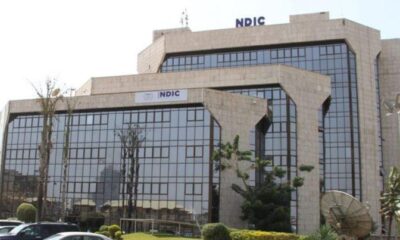

Nigeria’s Insurance Corporation raises maximum deposit coverage from N500k to N5m
-
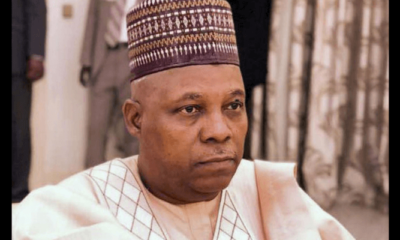

Nigeria’s economy will witness positive changes after painful sacrifice— VP Shettima
-


Nigeria’s Dangote refinery set to get valid operating licence
-


In 30 years, half of Nigerian biscuit companies went out of business— Manufacturers
-
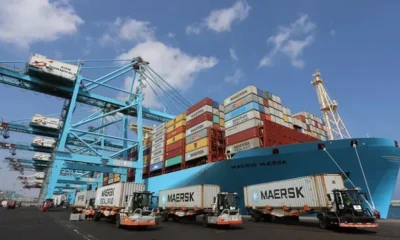

Nigeria gets $600 million investment from Danish firm Moller-Maersk
-
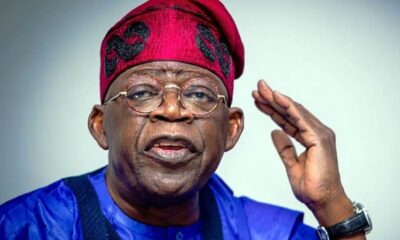

I saved Nigeria from bankruptcy by removing fuel subsidy— Tinubu
Strictly Personal
This Sudan war is too senseless; time we ended it, By Tee Ngugi
Published
5 days agoon
April 28, 2024
Why are the Sudanese Armed Forces (SAF) and the paramilitary Rapid Support Forces (RPF) engaged in a vicious struggle? It is not that they have ideological, religious or cultural differences.
Not that people should fight because of these kinds of differences, but we live in a world where social constructions often lead to war and genocide. It is not that either side is fighting to protect democracy. Both sides were instruments of the rapacious dictatorship of Omar el-Bashir, who was overthrown in 2019.
Both are linked to the massacres in Darfur during Bashir’s rule that led to his indictment by the International Criminal Court for crimes against humanity. They both stood by as ordinary, unarmed people took to the streets and forced the removal of the Bashir regime.
None of these entities now fighting to the last Sudanese citizen has any moral authority or constitutional legitimacy to claim power. They both should have been disbanded or fundamentally reformed after the ouster of Bashir.
The SAF and the RSF are fighting to take over power and resources and continue the repression and plunder of the regime they had supported for so long. And, as you can see from news broadcasts, they are both well-versed in violence and plunder.
Since the fighting began in 2023, both sides have been accused of massacres that have left more than 30,000 people dead. Their fighting has displaced close to 10 million people. Their scramble for power has created Sudan’s worst hunger crisis in decades. Millions of refugees have fled into Chad, Ethiopia and South Sudan.
The three countries are dubious places of refuge. Chad is a poor country because of misrule. It also experiences jihadist violence. Ethiopia is still simmering with tensions after a deadly inter-ethnic war.
And South Sudan has never recovered from a deadly ethnic competition for power and resources. African refugees fleeing to countries from which refugees recently fled or continue to flee sums up Africa’s unending crisis of governance.
Africa will continue to suffer these kinds of power struggles, state failure and breakdown of constitutional order until we take strengthening and depersonalising our institutions as a life and death issue. These institutions anchor constitutional order and democratic process.
Strong independent institutions would ensure the continuity of the constitutional order after the president leaves office. As it is, presidents systematically weaken institutions by putting sycophants and incompetent morons in charge. Thus when he leaves office by way of death, ouster or retirement, there is institutional collapse leading to chaos, power struggles and violence. The African Union pretends crises such as the one in Sudan are unfortunate abnormally. However, they are systemic and predictable. Corrupt dictatorships end in chaos and violence.
Tee Ngugi is a Nairobi-based political commentator.
Strictly Personal
Air Peace, capitalism and national interest, By Dakuku Peterside
Published
2 weeks agoon
April 16, 2024
Nigerian corporate influence and that of the West continue to collide. The rationale is straightforward: whereas corporate activity in Europe and America is part of their larger local and foreign policy engagement, privately owned enterprises in Nigeria or commercial interests are not part of Nigeria’s foreign policy ecosystem, neither is there a strong culture of government support for privately owned enterprises’ expansion locally and internationally.
The relationship between Nigerian businesses and foreign policy is important to the national interest. When backing domestic Nigerian companies to compete on a worldwide scale, the government should see it as a lever to drive foreign policy, and national strategic interest, promote trade, enhance national security considerations, and minimize distortion in the domestic market as the foreign airlines were doing, boost GDP, create employment opportunities, and optimize corporate returns for the firms.
Admitted nations do not always interfere directly in their companies’ business and commercial dealings, and there are always exceptions. I can cite two areas of exception: military sales by companies because of their strategic implications and are, therefore, part of foreign and diplomatic policy and processes. The second is where the products or routes of a company have implications for foreign policy. Air Peace falls into the second category in the Lagos – London route.
Two events demonstrate an emerging trend that, if not checked, will disincentivize Nigerian firms from competing in the global marketplace. There are other notable examples, but I am using these two examples because they are very recent and ongoing, and they are typological representations of the need for Nigerian government backing and support for local companies that are playing in a very competitive international market dominated by big foreign companies whose governments are using all forms of foreign policies and diplomacy to support and sustain.
The first is Air Peace. It is the only Nigerian-owned aviation company playing globally and checkmating the dominance of foreign airlines. The most recent advance is the commencement of flights on the Lagos – London route. In Nigeria, foreign airlines are well-established and accustomed to a lack of rivalry, yet a free-market economy depends on the existence of competition. Nigeria has significantly larger airline profits per passenger than other comparable African nations. Insufficient competition has resulted in high ticket costs and poor service quality. It is precisely this jinx that Air Peace is attempting to break.
On March 30, 2024, Air Peace reciprocated the lopsided Bilateral Air Service Agreement, BASA, between Nigeria and the United Kingdom when the local airline began direct flight operations from Lagos to Gatwick Airport in London. This elicited several reactions from foreign airlines backed by their various sovereigns because of their strategic interest. A critical response is the commencement of a price war. Before the Air Peace entry, the price of international flight tickets on the Lagos-London route had soared to as much as N3.5 million for the economy ticket. However, after Air Peace introduced a return economy class ticket priced at N1.2 million, foreign carriers like British Airways, Virgin Atlantic, and Qatar Airways reduced their fares significantly to remain competitive.
In a price war, there is little the government can do. In an open-market competitive situation such as this, our government must not act in a manner that suggests it is antagonistic to foreign players and competitors. There must be an appearance of a level playing field. However, government owes Air Peace protection against foreign competitors backed by their home governments. This is in the overall interest of the Nigerian consumer of goods and services. Competition history in the airspace works where the Consumer Protection Authority in the host country is active. This is almost absent in Nigeria and it is a reason why foreign airlines have been arbitrary in pricing their tickets. Nigerian consumers are often at the mercy of these foreign firms who lack any vista of patriotism and are more inclined to protect the national interest of their governments and countries.
It would not be too much to expect Nigerian companies playing globally to benefit from the protection of the Nigerian government to limit influence peddling by foreign-owned companies. The success of Air Peace should enable a more competitive and sustainable market, allowing domestic players to grow their network and propel Nigeria to the forefront of international aviation.
The second is Proforce, a Nigerian-owned military hardware manufacturing firm active in Rwanda, Chad, Mali, Ghana, Niger, Burkina Faso, and South Sudan. Despite the growing capacity of Proforce in military hardware manufacturing, Nigeria entered two lopsided arrangements with two UAE firms to supply military equipment worth billions of dollars , respectively. Both deals are backed by the UAE government but executed by UAE firms.
These deals on a more extensive web are not unconnected with UAE’s national strategic interest. In pursuit of its strategic national interest, India is pushing Indian firms to supply military equipment to Nigeria. The Nigerian defence equipment market has seen weaker indigenous competitors driven out due to the combination of local manufacturers’ lack of competitive capacity and government patronage of Asian, European, and US firms in the defence equipment manufacturing sector. This is a misnomer and needs to be corrected.
Not only should our government be the primary customer of this firm if its products meet international standards, but it should also support and protect it from the harsh competitive realities of a challenging but strategic market directly linked to our national military procurement ecosystem. The ability to produce military hardware locally is significant to our defence strategy.
This firm and similar companies playing in this strategic defence area must be considered strategic and have a considerable place in Nigeria’s foreign policy calculations. Protecting Nigeria’s interests is the primary reason for our engagement in global diplomacy. The government must deliberately balance national interest with capacity and competence in military hardware purchases. It will not be too much to ask these foreign firms to partner with local companies so we can embed the technology transfer advantages.
Our government must create an environment that enables our local companies to compete globally and ply their trades in various countries. It should be part of the government’s overall economic, strategic growth agenda to identify areas or sectors in which Nigerian companies have a competitive advantage, especially in the sub-region and across Africa and support the companies in these sectors to advance and grow to dominate in the African region with a view to competing globally. Government support in the form of incentives such as competitive grants ,tax credit for consumers ,low-interest capital, patronage, G2G business, operational support, and diplomatic lobbying, amongst others, will alter the competitive landscape. Governments and key government agencies in the west retain the services of lobbying firms in pursuit of its strategic interest.
Nigerian firms’ competitiveness on a global scale can only be enhanced by the support of the Nigerian government. Foreign policy interests should be a key driver of Nigerian trade agreements. How does the Nigerian government support private companies to grow and compete globally? Is it intentionally mapping out growth areas and creating opportunities for Nigerian firms to maximize their potential? Is the government at the domestic level removing bottlenecks and impediments to private company growth, allowing a level playing field for these companies to compete with international companies?
Why is the government patronising foreign firms against local firms if their products are of similar value? Why are Nigerian consumers left to the hands of international companies in some sectors without the government actively supporting the growth of local firms to compete in those sectors? These questions merit honest answers. Nigerian national interest must be the driving factor for our foreign policies, which must cover the private sector, just as is the case with most developed countries. The new global capitalism is not a product of accident or chance; the government has choreographed and shaped it by using foreign policies to support and protect local firms competing globally. Nigeria must learn to do the same to build a strong economy with more jobs.
EDITOR’S PICK


São Tomé and Principe to demand reparations from Portugal
The education and cultural minister of Sao Tome and Principe, an African island nation, announced on Thursday that the government...


Nigeria’s Insurance Corporation raises maximum deposit coverage from N500k to N5m
The maximum deposit insurance coverage levels for Deposit Money Banks has been raised by the Nigeria Deposit Insurance Corporation (NDIC)...


Zambian activist highlights ongoing threats to media freedom on World Press Freedom Day
As the world commemorates World Press Freedom Day on Friday, a youth activist from the Young Women Christian Association (YWCA)...


Nigeria’s economy will witness positive changes after painful sacrifice— VP Shettima
Nigeria’s Vice President, Senator Kashim Shettima, has told Nigerians to look at the bigger picture as the country’s economy will...


Nigeria’s food delivery startup Chowdeck raises $2.5m to optimise operations
Nigeria’s on-demand food delivery startup, Chowdeck, has announced securing the sum of $2.5 million in seed funding that will enable...
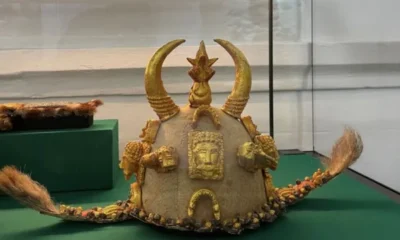

Ghanaians celebrate return of Asante Gold artefacts looted by British
Ghanaians, especially those from the ancient Asante region, have been in joyous mood as they flocked to the Manhyia Palace...
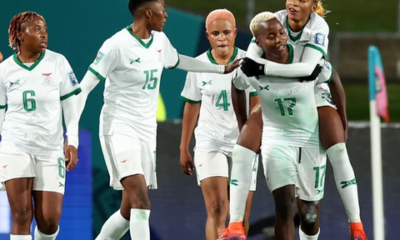

Why Zambia’s women national team could miss Olympics
Zambia’s women national football team is on the verge of missing out on playing at the Paris 2024 Olympic Games....


Religious leader, Luchile, notes improvements in media freedom but faults online media abuse
In this ongoing conversation to amplify voices on media freedoms, freedom of speech, and digital rights, we feature, Maxwell Luchile,...
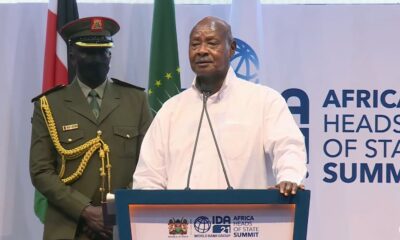

Video: Uganda’s Museveni urges African leaders to verify true motives behind IMF, W’Bank loans
In this video, Ugandan President, Yoweri Museveni, urged African leaders to verify the true intentions of multilateral lending institutions towards...
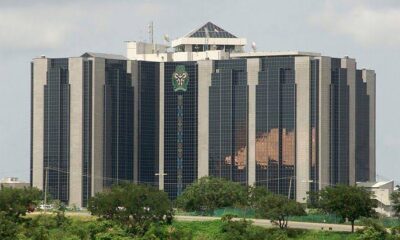

Nigerian banks close over two million accounts
At least two million bank accounts have been closed by different commercial banks in Nigeria following the failure of their...
Trending
-
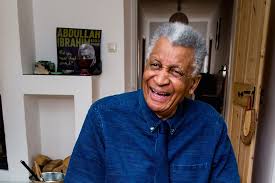
 Culture2 days ago
Culture2 days agoSouth African Jazz great Abdullah Ibrahim to embark on world tour at age 90
-

 Tech2 days ago
Tech2 days agoTanzania’s horticultural industry gets $2.1m grant from TradeMark Africa to boost market expansion
-

 Tech19 hours ago
Tech19 hours agoNigeria’s food delivery startup Chowdeck raises $2.5m to optimise operations
-

 Sports2 days ago
Sports2 days agoKenya unveils ‘killer-squad’ for Paris Olympics marathon Ahead of the 2024 Paris Olympic


